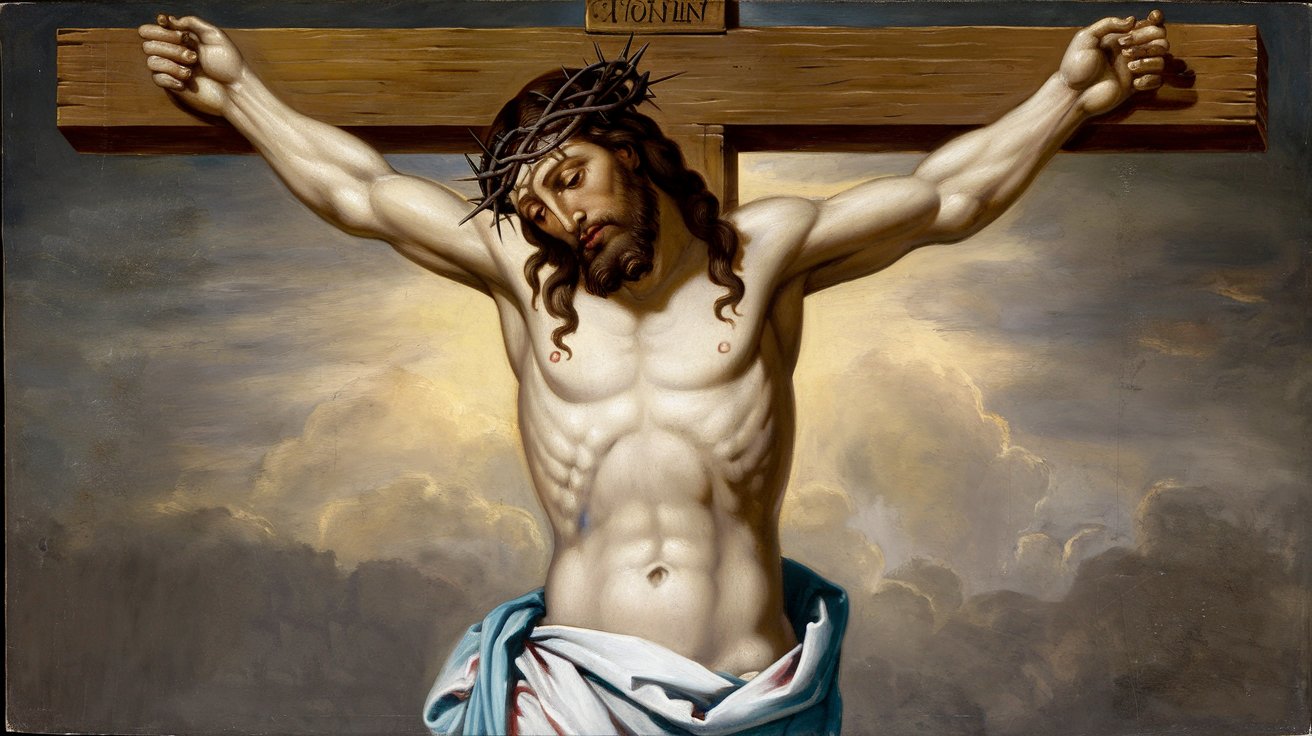
Who is Christ, and why does he matter so much? Jesus Christ, also known as Jesus of Nazareth, is a pivotal figure in Christianity and one of history's most influential individuals. Born in Bethlehem and raised in Nazareth, his teachings, miracles, and life events have shaped Western civilization and continue to inspire millions worldwide. Christians believe Jesus is the Son of God and the long-awaited Messiah, fulfilling ancient prophecies. His messages of love, forgiveness, and humility resonate deeply, making his story timeless. From his miraculous birth to his resurrection and ascension, Jesus' life offers profound lessons and enduring hope.
Birth and Early Life
Christ, also known as Jesus of Nazareth, has a fascinating early life that sets the stage for his profound impact on history and religion.
- Date of Birth: The exact date of Christ's birth is unknown, but it is traditionally celebrated on December 25.
- Place of Birth: Bethlehem, a small town in the Roman province of Judea.
- Family Background: Jesus was born to Mary, a virgin, and Joseph, a carpenter. He had several siblings, including James, Joseph, Simon, and Judas.
Theological Significance
Christ's divine nature and role as the Messiah are central to Christian belief, shaping the faith's core doctrines.
- Divine Nature: Christians believe that Jesus is the Son of God, fully divine and fully human.
- Messiah: Jesus is seen as the long-awaited Messiah in Jewish tradition, fulfilling Old Testament prophecies.
Ministry
Jesus' ministry, which began around the age of 30, was marked by powerful teachings and miraculous acts.
- Preaching: Jesus began his ministry around the age of 30, preaching in various parts of Judea and Galilee.
- Teachings: His teachings emphasized love, forgiveness, and the importance of living a virtuous life. Key teachings include the Sermon on the Mount and the Parables of Jesus.
Miracles and Healings
Jesus performed numerous miracles, showcasing his divine power and compassion.
- Healing the Blind: Jesus performed numerous miracles, including healing the blind, such as Bartimaeus (Mark 10:46-52).
- Raising the Dead: He also raised people from the dead, such as Lazarus (John 11:1-44).
Parables
Jesus used parables to convey deep spiritual truths in simple, relatable stories.
- The Prodigal Son: One of Jesus' most famous parables, which teaches about forgiveness and redemption (Luke 15:11-32).
- The Good Samaritan: Another well-known parable that emphasizes compassion and helping others (Luke 10:25-37).
The Last Supper
The Last Supper is a pivotal event in Jesus' life, marking the institution of the Eucharist.
- Institution of the Eucharist: During the Last Supper, Jesus instituted the Eucharist, also known as Communion, where bread and wine are used to symbolize his body and blood (Matthew 26:26-30).
Betrayal and Arrest
Jesus' betrayal and arrest set the stage for his crucifixion and resurrection.
- Judas' Betrayal: One of Jesus' twelve apostles, Judas Iscariot, betrayed him for 30 pieces of silver (Matthew 26:14-16).
- Arrest in the Garden of Gethsemane: Jesus was arrested after being betrayed by Judas in the Garden of Gethsemane (Matthew 26:36-56).
Trial
Jesus faced trials before both Jewish and Roman authorities, leading to his crucifixion.
- Before the Sanhedrin: Jesus was taken to the Sanhedrin, the Jewish high council, where he was questioned about his teachings and authority (Matthew 26:57-68).
- Before Pilate: After being rejected by the Sanhedrin, Jesus was taken to Pontius Pilate, the Roman governor of Judea, who sentenced him to death (Matthew 27:1-2).
Crucifixion
The crucifixion of Jesus is a central event in Christian theology, symbolizing his sacrifice for humanity's sins.
- Execution by Crucifixion: Jesus was crucified on a cross outside Jerusalem, a method of execution used by the Romans (Matthew 27:32-44).
- The Crucifixion Narrative: The crucifixion is described in detail in all four Gospels: Matthew, Mark, Luke, and John.
Resurrection
The resurrection of Jesus is a cornerstone of Christian faith, providing hope and evidence of his divine nature.
- Empty Tomb: After his death, Jesus' tomb was found empty by Mary Magdalene and other followers (John 20:1-10).
- Resurrection Appearance: Jesus appeared to his disciples and other followers after his resurrection, providing evidence of his divine nature (John 20:19-29).
Ascension
Jesus' ascension into heaven marks the end of his earthly ministry and the beginning of his eternal reign.
- Return to Heaven: After appearing to his disciples, Jesus ascended into heaven, where he sits at the right hand of God (Acts 1:9-11).
The Holy Spirit
Jesus promised the coming of the Holy Spirit, who would guide and empower his followers.
- Promise of the Holy Spirit: Before his ascension, Jesus promised that the Holy Spirit would come to guide and empower his followers (John 14:15-31).
The Church
Jesus established the Church, commissioning his followers to spread his teachings and continue his work.
- Establishment of the Church: Jesus established the Church, with Peter as its first leader, and commissioned his followers to spread his teachings (Matthew 16:18-19).
Missionary Work
The apostles and early Christians spread Jesus' message throughout the Roman Empire, establishing the foundations of Christianity.
- Early Christian Missionaries: The apostles, including Peter and Paul, traveled extensively to spread the message of Jesus Christ, establishing churches in various parts of the Roman Empire.
Scriptural Authority
The Bible, including the New Testament writings about Jesus, is considered sacred scripture by Christians.
- Bible as Scripture: The Bible, including the New Testament writings about Jesus, is considered sacred scripture by Christians.
Theological Interpretations
Christian theology has developed various interpretations of Jesus' nature and role in salvation history.
- Trinity: The concept of the Trinity, which describes God as one in three persons (Father, Son, and Holy Spirit), is central to Christian theology and is rooted in Jesus' teachings.
Christology
Early Christian debates about Jesus' nature led to various Christological formulations, shaping the faith's doctrines.
- Christological Debates: Early Christian debates about Jesus' nature and role in salvation history led to various Christological formulations, such as Arianism and Nestorianism.
Historical Context
Understanding the historical context of Jesus' life helps illuminate his teachings and impact.
- Roman Empire: Jesus lived during the Roman Empire, which had significant cultural, political, and economic impacts on his life and teachings.
Jewish Context
Jesus' teachings were deeply rooted in Jewish tradition, drawing on Old Testament scriptures and customs.
- Jewish Tradition: Jesus was deeply rooted in Jewish tradition, drawing on Old Testament scriptures and Jewish customs in his teachings.
Greek Influence
The Hellenistic culture of the Mediterranean region influenced early Christianity, particularly in theology and liturgy.
- Hellenistic Culture: The Hellenistic culture of the Mediterranean region influenced early Christianity, particularly in the development of Christian theology and liturgy.
Early Christian Communities
Early Christians often practiced communal living, sharing resources and property.
- Communal Living: Early Christian communities often practiced communal living, sharing resources and property as described in Acts 2:42-47.
Persecution
Christians faced persecution from both Jewish and Roman authorities, leading to martyrdoms and forced conversions.
- Early Persecution: Christians faced persecution from both Jewish and Roman authorities, leading to martyrdoms and forced conversions.
Theological Controversies
Early Christianity experienced significant theological controversies, shaping its doctrines and practices.
- Arianism vs. Trinitarianism: The Arian controversy, which questioned the divinity of Jesus, was resolved at the Council of Nicaea in 325 CE, affirming the Trinity.
Councils and Creeds
Church councils and creeds played a crucial role in defining Christian beliefs and practices.
- Nicene Creed: The Nicene Creed, formulated at the Council of Nicaea, is a foundational statement of Christian faith affirming Jesus' divinity.
Iconography
Jesus has been depicted in various forms of art throughout history, from early Christian mosaics to modern paintings.
- Artistic Representations: Jesus has been depicted in various forms of art throughout history, from early Christian mosaics to modern paintings.
Liturgical Celebrations
Liturgical celebrations, such as the Eucharist, commemorate key events in Jesus' life and teachings.
- Eucharist: The Eucharist remains a central liturgical celebration in Christianity, commemorating Jesus' Last Supper.
Feast Days
Major feast days, such as Christmas and Easter, celebrate significant events in Jesus' life.
- Christmas and Easter: Christmas (December 25) and Easter (movable date) are two major feast days celebrating Jesus' birth and resurrection.
Missionary Work Today
Christian missionaries continue to spread Jesus' message across the globe, adapting to local cultures and contexts.
- Global Missionary Efforts: Today, Christian missionaries continue to spread the message of Jesus Christ across the globe, adapting to local cultures and contexts.
Social Justice
Jesus' teachings on social justice emphasize the importance of caring for the poor, marginalized, and oppressed.
- Jesus' Teachings on Justice: Jesus emphasized social justice, advocating for the poor, marginalized, and oppressed (Matthew 25:31-46).
Ethical Teachings
Jesus' ethical teachings, such as the Golden Rule, provide guidance for living a virtuous life.
- Golden Rule: Jesus taught the Golden Rule: "Do unto others as you would have them do unto you" (Matthew 7:12).
Love Commandment
Jesus emphasized the importance of loving one's neighbor, which is central to Christian ethics.
- Love Your Neighbor: Jesus emphasized loving one's neighbor as oneself, which is central to Christian ethics (Mark 12:31).
Forgiveness
Forgiveness is a key aspect of Jesus' teachings, encouraging reconciliation and healing.
- Forgiveness Commandment: Jesus taught that forgiveness is essential, even for those who have wronged us (Matthew 6:14-15).
Humility
Jesus emphasized humility and service, encouraging his followers to serve others rather than seeking power or status.
- Humility and Service: Jesus emphasized humility and service, encouraging his followers to serve others rather than seeking power or status (Matthew 20:26-28).
Faith and Doubt
Jesus interacted with doubters, providing evidence and reassurance to strengthen their faith.
- Faith vs. Doubt: Jesus interacted with doubters, such as Thomas, who required physical evidence before believing in his resurrection (John 20:24-29).
Parables and Metaphors
Jesus used parables to teach complex theological concepts in simple, relatable terms.
- Parables as Teaching Tools: Jesus used parables to teach complex theological concepts in simple, relatable terms.
Christ's Lasting Impact
Christ's life and teachings have left an indelible mark on history and culture. From his humble birth in Bethlehem to his profound teachings on love, forgiveness, and humility, Jesus has inspired countless individuals and movements. His miracles, parables, and the establishment of the Church continue to influence millions worldwide. The crucifixion and resurrection are central to Christian faith, symbolizing hope and redemption. Early Christian communities, despite facing persecution, spread his message far and wide. Today, Jesus' teachings on social justice, compassion, and ethical living remain relevant. His impact is evident in art, literature, philosophy, and even modern social movements. Whether through the celebration of Christmas and Easter or the ongoing work of missionaries, Christ's legacy endures. His message of love and forgiveness continues to resonate, offering guidance and inspiration to people of all backgrounds.
Was this page helpful?
Our commitment to delivering trustworthy and engaging content is at the heart of what we do. Each fact on our site is contributed by real users like you, bringing a wealth of diverse insights and information. To ensure the highest standards of accuracy and reliability, our dedicated editors meticulously review each submission. This process guarantees that the facts we share are not only fascinating but also credible. Trust in our commitment to quality and authenticity as you explore and learn with us.


